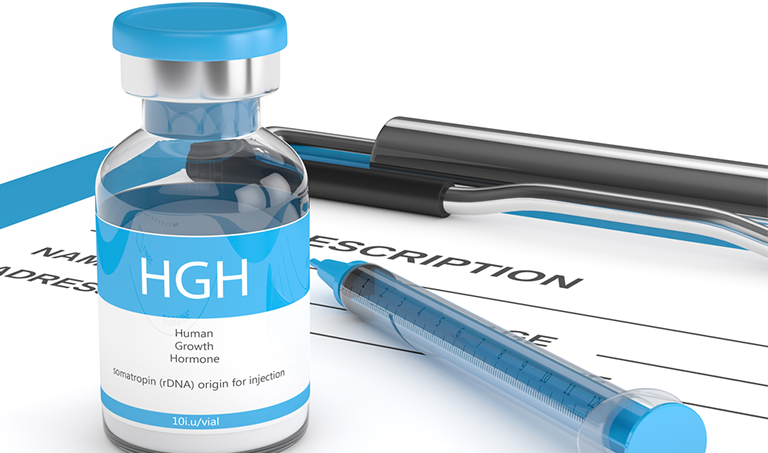Human Growth Hormone (HGH) has gained attention as a potential fountain of youth, with claims of revitalizing various aspects of health and appearance. While HGH has legitimate medical uses, its widespread misuse and potential risks make it essential to separate fact from fiction. In this article, we will explore the benefits, uses, and possible side effects of HGH, shedding light on its relevance to sexual health.
HGH Uses and Medical Applications
HGH is a hormone produced by the pituitary gland, primarily responsible for promoting growth in children and adolescents. However, it serves multiple functions, including regulating body composition, muscle and bone growth, and metabolism of sugar and fat. Synthetically produced HGH is a key component in certain prescription drugs and is readily available online.
In the medical realm, HGH injections have FDA approval for specific conditions in both children and adults. These include addressing short stature in children due to various factors, such as Turner’s syndrome, Prader-Willi syndrome, chronic kidney disease, HGH deficiency, and being born small for gestational age. In adults, approved uses encompass conditions like short bowel syndrome, HGH deficiency from pituitary tumors, and muscle wasting related to HIV/AIDS.
HGH and Performance Enhancement
Beyond these medically approved applications, HGH is frequently used for off-label purposes, with potential applications in sports and athletics. Some individuals combine HGH with anabolic steroids, aiming to enhance muscle growth and athletic performance. However, the efficacy of HGH in this context remains uncertain, lacking FDA approval.
Anti-aging enthusiasts have also speculated about HGH’s potential to reverse age-related bodily changes, although such claims are not substantiated by scientific evidence. The use of HGH for anti-aging purposes is not endorsed by the FDA, yet some doctors prescribe it off-label, and it is readily accessible through various channels, including online sources.
HGH Products and Claims
HGH products, whether injectable or in the form of pills and sprays, are marketed with bold promises. Advertisements suggest they can turn back the biological clock, offering benefits such as reduced fat, increased muscle mass, hair regrowth, and improved sex life, among others. However, the Federal Trade Commission has found no reliable evidence supporting these claims, particularly for orally administered HGH, which is typically digested before absorption.
HGH Side Effects and Potential Hazards
While HGH may offer benefits for certain medical conditions when used under professional guidance, it is not without risks. Possible side effects of HGH use include nerve, muscle, or joint pain, fluid retention (edema), carpal tunnel syndrome, numbness and tingling of the skin, and elevated cholesterol levels. Additionally, HGH may increase the risk of diabetes and contribute to the growth of cancerous tumors.
One significant concern is the authenticity and safety of HGH obtained outside of medical supervision. Due to its high cost, counterfeit HGH drugs have proliferated, making it difficult for consumers to discern the legitimacy of their purchases. This poses serious health risks, as unapproved and unregulated products can have unpredictable effects.
Consulting with Your Doctor
HGH is a hormone with legitimate medical applications, but its misuse and the proliferation of unregulated products pose considerable risks. Always prioritize safety and informed decision-making, and be wary of unverified claims surrounding HGH products.
Optimal Health reminds individuals interested in HGH to prioritize their health and well-being by seeking guidance from qualified healthcare providers. We offer HGH peptide therapy for those who wish to seek our professional opinions.

